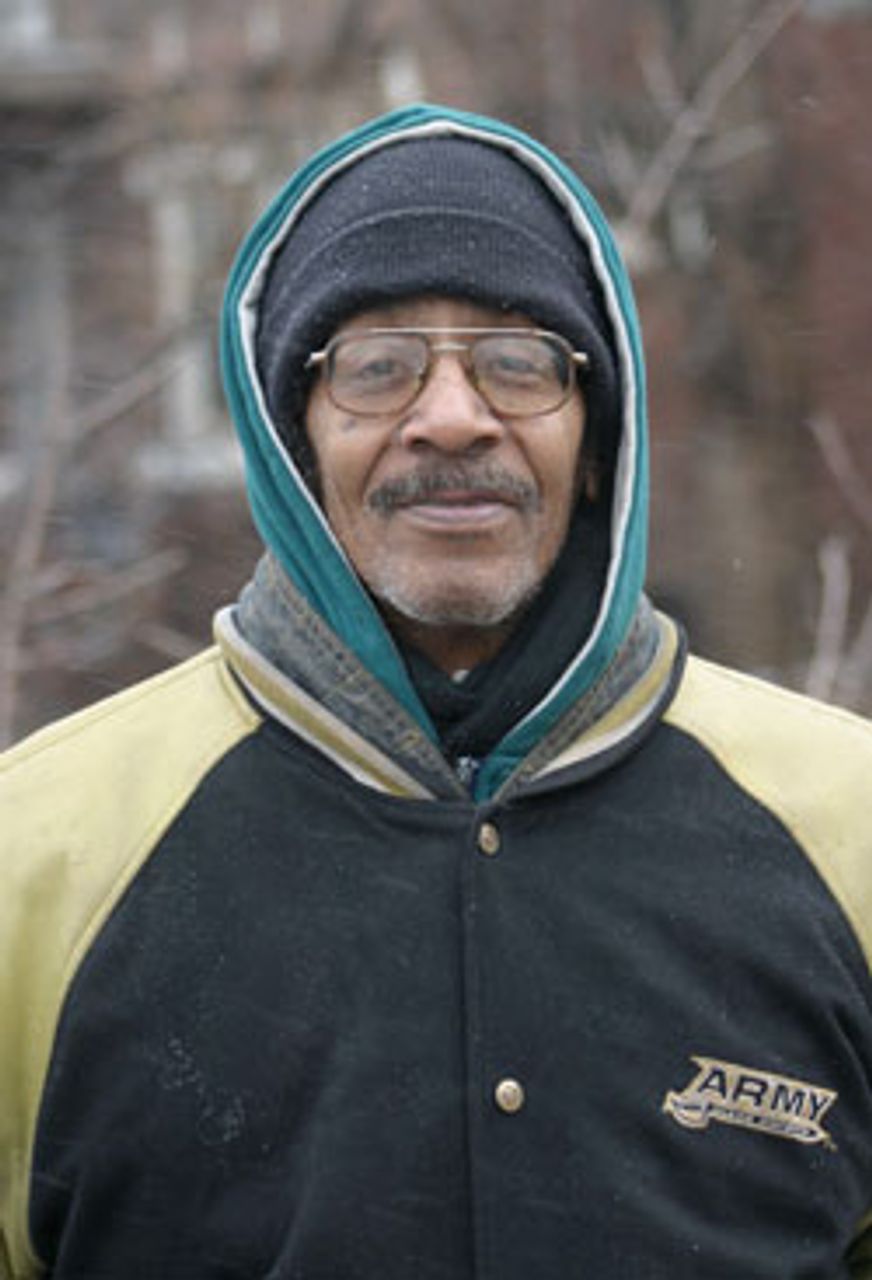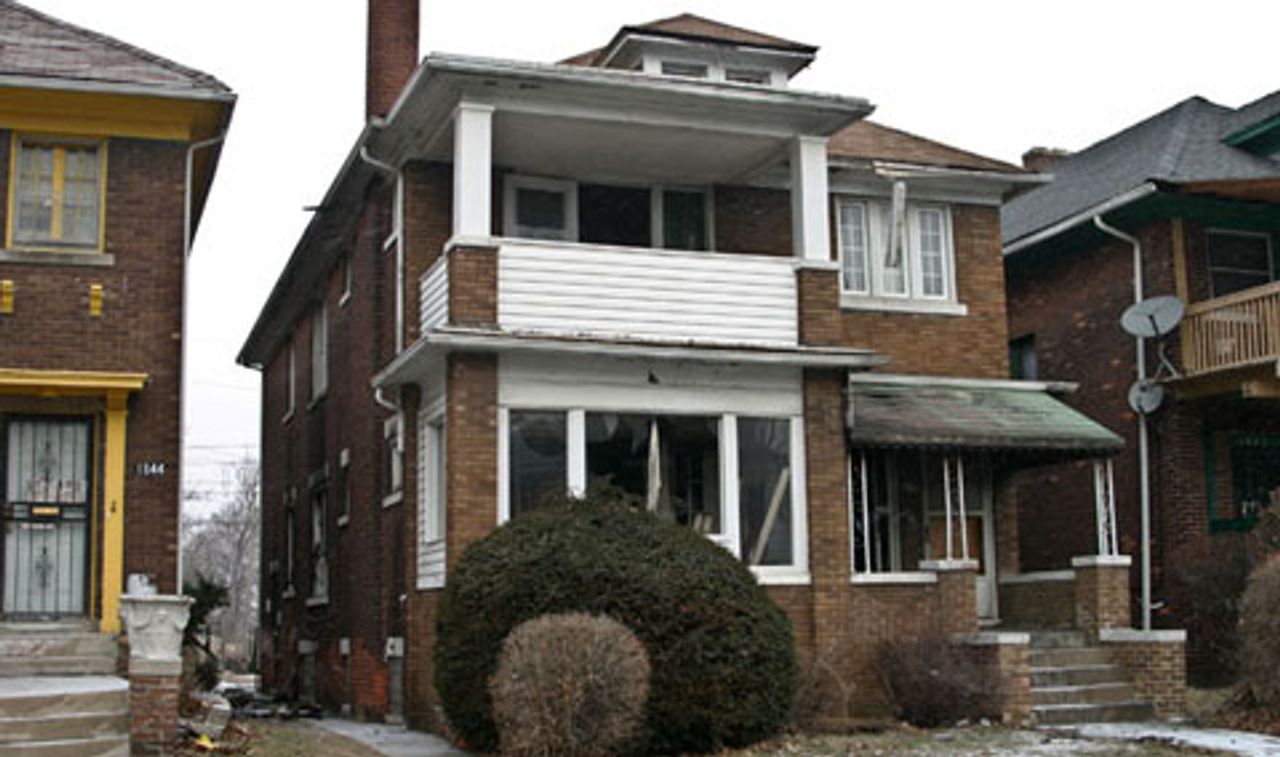A utility shutoff caused another fatality in Detroit on Monday, an all too often occurrence this winter season.
One man died and another was critically injured as a result of the fire that began around 10 pm Monday evening on the city’s west side. An 82-year-old man, found by the upstairs neighbor and pulled to safety, is in a critical condition with second-degree burns over 50 percent of his body. His 41-year-old son was found later in the house, but died after being taken to the hospital. A third person living in the upstairs duplex, and the one who reportedly pulled both the father and son out of the house, was uninjured.
The names of the victims have not been released as of the posting of this article.
It is suspected that a propane tank caused the fire. The father and son, living without gas or electricity, had resorted to propane as the temperatures dropped down to 4 degrees Fahrenheit. The Detroit Fire Department said this is the sixth fire-related death this year, with the majority of them in homes without utilities.
DTE Energy spokesman Scott Simon confirmed that the utilities in the home had not been active since June 17, 2008. Simon said the gas meter was removed from the house in September 2009. The Detroit News reported that the utilities had been illegally hooked up at the home.
This latest house fire was only two miles from the location of the Dexter Avenue fire that took the lives of three members of the Allen family one month ago. Killed in that fire were Marvin Allen, 62, and his brother Tyrone Allen, 61, who were both disabled, and Tyrone’s girlfriend Lynn Greer, 58. They also had been living without utilities since July 2008. (See: Three die in Detroit house fire).
If the lack of utilities were a disease, they would be labeled a “pandemic” in Detroit. Last year nearly a quarter of a million households in the Detroit area were without gas at some point during the year, with more than a few paying with their lives or the lives of their children. DTE Energy shut off a shocking 221,000 households in the metro area because of delinquent payment, a 50 percent increase over 2008 when 142,000 households had their utilities terminated.
State and local agencies estimate that an additional 150,000 metro-Detroit households are at risk of having their heat or electricity turned off if they do not get assistance paying their bills. The Michigan Department of Human Services reported that there has been a 30 percent increase in people seeking assistance for their bills over last year, a product of a 33 percent increase in unemployment over last year.
 Michael Stevenson
Michael StevensonMichael Stevenson spoke to the WSWS at the scene of the latest tragedy. Stevenson was an auto parts worker laid off from one of Detroit Mayor Dave Bing’s plants.
“Fires, unfortunately, are common throughout Detroit,” Stevenson said. “A lot of the changes in Detroit took place because of the cuts in the auto industry. You know a lot of workers owned two or three houses. They would buy one or two extra houses as income properties. There were good paying jobs here. That’s why people came here from down South and other places in the 1930s.
“But I noticed years ago that whenever the auto companies carried out cutbacks, people lost their homes. It happened again and again.
“This area is just two blocks from the historic Boston-Edison area. This area had very nice houses. In the Boston area there are mansions.
“Now, look at what has happened. The neighborhoods have collapsed. If you go around to the next block there is only one house standing. If you drive around you will see all kinds of animals I’ve never seen before in this area. I’ve seen possums, pheasants walking across the field, even rabbits. It’s returning back to a rural state because of all of the vacant lots.
“This is a motor city, even now. The majority of the problems are tied into the auto industry, and it is rough.”
The next-door neighbor, Cheryl Pettiford, who lives with her mother, said she did not know the two men but knew that they moved into the duplex within the last six months.
“I feel bad to hear he died,” stated Cheryl pointing out that the conditions were difficult for many people in the neighborhood.
“Look at this block,” stated Cheryl. “Most of the houses on our block are vacant. On my side of the street there are three houses that are occupied (out of 6 houses). On the other side only one out of seven.”
“You know, this used to be a beautiful block.”
When asked if a lot of people are living with only space heaters and without utilities, another resident said, “It’s hard out here. But I don’t think they should have the right to cut your utilities off in the winter time, especially when they know that winter is here. It’s hard as it is. Everybody is having a hard time with bills. I don’t know how, but I think there must be a better way to go about it instead of cutting utilities off. And believe me, they will cut your stuff off in the middle of the winter.”
The Detroit Free Press reports that the US Department of Human Services allocated $74 million to Michigan to add to a $283 million budget for emergency assistance, but that the majority of it was used for winterizing homes. Officials acknowledge it is far too little compared to what is needed.
DTE Energy received revenues of $9.3 billion last year and profits of $546 million. The for-profit company is one of the largest energy companies in the country with business entities in gas, electricity, coal and rail.
A recent article in the Detroit Free Press (“More People struggling to stay warm, taxing agencies”) notes, “Unlike some states, Michigan does not require private utility providers, such as DTE Energy and Consumers Energy, to keep heat on during the winter for most residents who are behind on their bills. The energy providers, however, are not allowed to shut off power to senior citizens in the winter and must offer payment plans to lower-income people.”
The report that 150,000 people in southeast Michigan face losing their utilities in the middle of the winter is inhuman. The brutal death of this worker, and similar deaths, are social murders. The unfortunate truth is that tens of thousands of working class families face similar conditions.

